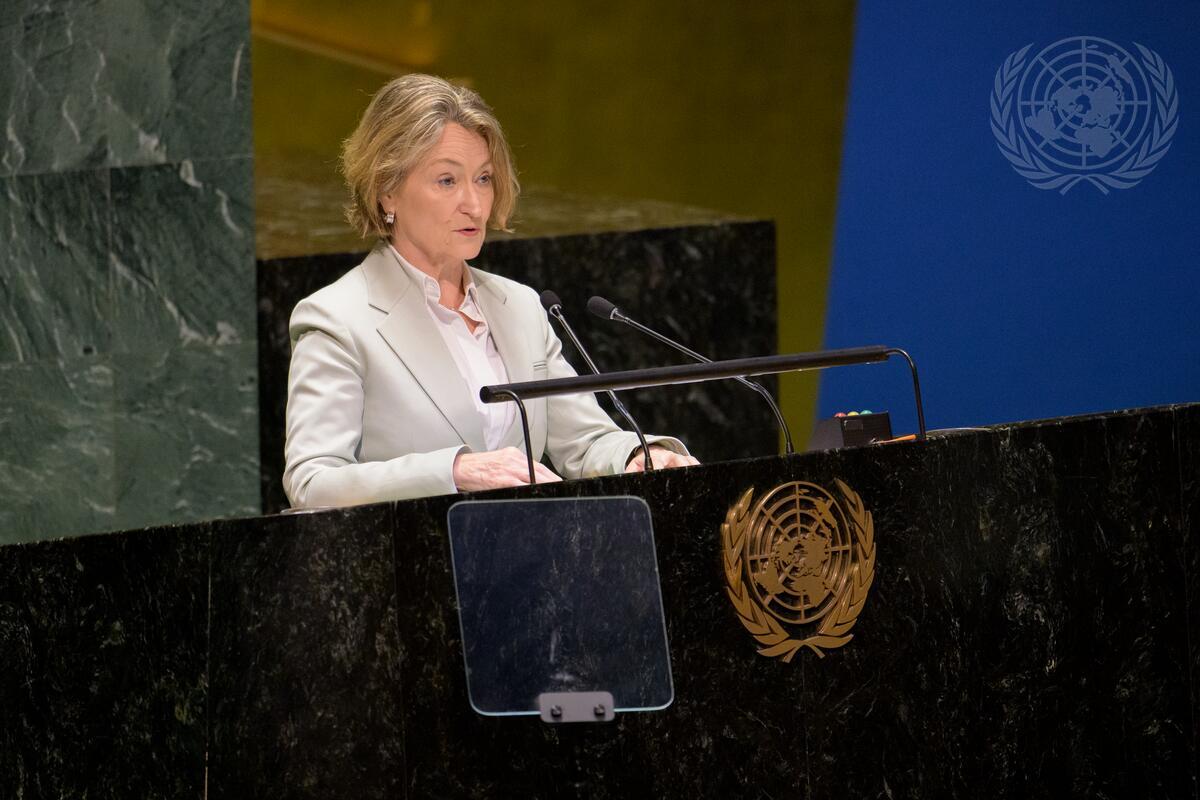On 16 October 2025, Assistant Secretary-General Ilze Brands Kehris introduced twenty reports under the agenda for the promotion and protection of human rights, including the Secretary-General’s annual report on reprisals.
An interactive dialogue followed the her brief overview of the reports, wherein member States had an opportunity to address the expert.
In a joint statement with Luxembourg and the Netherlands, Belgium highlighted a number of cases of reprisals, including those of Chow Hang-Tung from Hong Kong, Pham Doan Trang from Vietnam, and members of the Human Rights Center Viasna from Belarus.
- Chow is a human rights lawyer and labour rights advocate currently imprisoned for ‘inciting subversion’ under Hong Kong’s National Security Law, on 9 September 2021. Together with core members of the Hong Kong Alliance in Support of Patriotic Democratic Movements of China, she was targeted for holding a peaceful commemoration of the 1989 Tiananmen Square protest and massacre.
- Pham Doan Trang is a writer, journalist, and pro-democracy activist who is currently imprisoned in Vietnam for writing and publishing pieces in support of human rights.
- The Human Rights Center Viasna is a leading Belarusian human rights organisation that focuses on death penalty abolition, the end of torture, ill-treatment, and political persecution. Several of its members have been detained for their work.
In our annual campaign to #EndReprisals, ISHR featured the case of Viasna in 2022, victims of the National Security Law in Hong Kong in 2023, and of Pham Doan Trang in 2024.
ISHR has also called States to raise cases at the General Assembly, and we welcome this good practice, as publicly raising cases of reprisals contributes to defenders’ protection, shows solidarity with them and contributes to accountability for perpetrators.
Questions on methodology and concerns over the growing trend of transnational repression
Belgium concluded its statement by asking the Assistant Secretary-General if she could expand on the methodology behind the selection of cases that make it into the report and the decision to exclude certain cases from the report.
In response, the Ilze Brands Kehris briefly detailed the process by which Office of the United Nations High Commissioner for Human Rights (OHCHR) gathers cases in the spring from across the UN system and other sources with information on allegations. Following collection, she said, the Office begins a process of verification with field colleagues and their reprisals team.
Some cases, Kehris added, do not meet the threshold of what constitutes a reprisal and others are excluded for reasons of confidentiality and fear of further reprisals.
However, the Assistant Secretary-General did not address the lack of follow-up on ongoing cases of reprisals, which ISHR has identified as a methodological flaw.
Additionally, Kehris, the European Union, and Ireland all noted the recent increase in transnational repression, a trend that ‘need(s) to be addressed immediately’.
The Assistant Secretary-General’s report documented 11 cases of intimidation and reprisals across borders, involving six Member States.
With reactionary attacks against defenders increasing internationally, it is essential that Member States respect the rights of human rights defenders and advocate for them when they are sidelined and detained.




